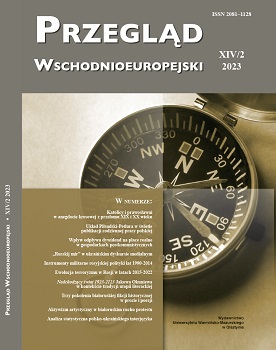Impact of dividends and capital intensity of labour on real wages in post-communist economies
Impact of dividends and capital intensity of labour on real wages in post-communist economies
Author(s): Zdeněk Pikhart, Pavel ProcházkaSubject(s): Labor relations, International relations/trade, Economic development, Post-Communist Transformation, Financial Markets
Published by: Wydawnictwo Uniwersytetu Warmińsko-Mazurskiego w Olsztynie
Keywords: Dividend outflow; Foreign direct investment; Capital intensity; Compensation of employees;
Summary/Abstract: This paper aims to verify gains and losses from foreign direct investment as well as outflow of capital in the form of dividends from Central and Eastern Europe. The topic of dividend outflow is currently at the centre of political as well as media interest. At the same time, it is prone to simplistic interpretations and possible political intervention might exert a significant negative social impact. The contemporary economic theory and empirical research are in relative consensus on the positive effects of foreign investment. Most notably, it increases capital endowment of labour. However, the questions that have not yet been resolved are the rate of intensity, phases and channels of foreign capital flows. The effect of foreign investment during the different phases of foreign life-cycle is practically unexplored. The need for this type of research does not arise in Western Europe’s economies as they are in a position of creditor compared to Central and Eastern Europe. Therefore, the article examines whether the outflow of dividends is associated with the deterioration of aggregate demand or an increase of export capacities. Through the panel regression method, these relationships are captured in Western Europe’s economies and compared with the Central and Eastern Europe’s economies. The effect of capital intensity and dividend outflow on real wages in the post-communist countries was examined. The findings break down the myth portrayed in the media concerning the cost of dividend outflow and, on the contrary, they confirm substantial benefits stemming from the capital inflow. Late stages of foreign investment cycle connected with dividend outflow do not bear any adverse effects. The high profitability of foreign-controlled enterprises is in line with the favourable wage development of domestic labour force.
Journal: Przegląd Wschodnioeuropejski
- Issue Year: XIV/2023
- Issue No: 2
- Page Range: 85-103
- Page Count: 19
- Language: English

